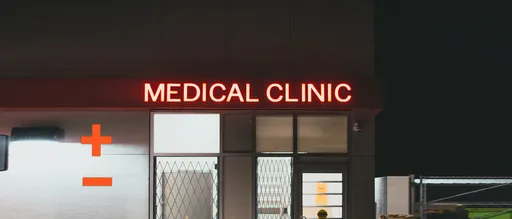“Health is the greatest gift.” ~ Anonymous
In our overly-connected, information-driven society, it can be challenging to discern who and what to trust when taking care of your health.
Some articles and blog posts will call certain foods and practices healthy, while others call the same thing the root cause of serious diseases.
What are you supposed to do with that?
Many people believe the current health system, as currently constructed, is the root of all evil. In contrast, others see it as a necessary and beneficial system for the overall wellness of everyone.
How do you know which group to believe?
In this article, I hope to provide an unbiased opinion that can help you begin to develop and pursue the right fit for your wellness journey.
I’m going to be comparing and contrasting the critical differences between preventative and reactive medicine approaches in 4 key categories:
- Western Medicine or A Holistic Approach?
- Disease Detection or Health Optimization?
- Incremental or Comprehensive?
- Event-driven or Process-driven?
Western Medicine or a Holistic Approach?
Western medicine is essentially the “symptom = pill” approach. This algorithmic approach has been practiced and implemented with great success for many people for a long time.
Doctors who use this approach have been trained in defined, evidence-based solutions based on accurate diagnosis.
Western medicine is an insurance or government payor-based system, which means that the insurance companies and government can have a lot of say in what they can and cannot do.
In this system, you’ll experience sick care and essential screenings. After you have a condition, the system is excellent at diagnosing and treating the problem.
This system needs to be set up to sustainably prevent the condition from developing in the first place.
On the other hand, a functional or holistic approach to medical care applies research and evidence-based techniques to get at the root cause of how you feel each day.
This approach involves specific lab panels and screenings not typically utilized in western medicine. This approach, meaning multiple systems working together, is combined to provide an accurate and complete picture of your unique health profile.
The holistic approach can also be scaled up or down to meet your budget.
Disease Detection or Health Optimization?
Before deciding which approach you prefer, you must consider what you want to learn about your health.
One method is what I refer to as the “rule-out” method. In this, you simply go through a battery of tests to determine if you have any active pathology that could be treated. This would be leaning towards the western medicine approach discussed above.
The alternative would be to approach testing to optimize your health profile to avoid future activation of specific pathology.
In this holistic approach, you choose specific tests based on your current symptoms (i.e., poor sleep, chronic fatigue, headaches, bowel issues, stomach pains, etc.) to uncover the root cause.
This approach typically requires multiple tests that must be paid out of pocket.
Incremental or Comprehensive?
Think of it this way:
- Incremental Testing = reactive approach (western medicine)
- Comprehensive Testing = preventive approach (holistic)
Either way, it can be used with great success based on your desires for your goals.
Typically, incremental testing will take small “bites” to uncover different things with an immediate response and treatment protocol.
On the other hand, comprehensive testing will provide a unique-to-you “big picture” with lifestyle adjustments for optimal health.
Simply put, incremental looks at the part or symptom, and comprehensive looks at the whole or lifestyle.
Event-Driven or Process-Driven?
In western medicine, some kind of event usually must occur to kick off the process. This could be the development of an illness, an acute injury, or an incident.
Once the event occurs, the system is excellent at solving and treating the issue with great care.
But the event needs to happen first.
The key idea in a holistic, comprehensive approach is to prevent the same event from happening.
It’s process-driven.
In this approach, you go through specific tests, analyze and assess them with a doctor, then work with a coach to implement the lifestyle changes necessary to optimize your health and wellness.
To Conclude…
With so many opinions and “experts” available, it can be hard to know what’s going to be the best fit for your health journey.
Hopefully, this article helped shed some light on the differences between preventive and reactive medicinal approaches.
As you continue in your health journey, refer to the articles in Tiger Medical’s learning center to continue to aid your growing understanding of the options available to you.
- Best Providers of Health Optimization Programs
- Nine Considerations When Choosing A Personalized Medical Program
- The Eight Most Common Questions About Tiger’s Personalized Medical Program
You have what it takes inside you to make a definite choice in the approach that will change the future trajectory of your health.
Our team at Tiger Medical has the experience, clinical skills, and coaching acumen to help guide you in your health and wellness journey.
To talk to one of our professionals, click here to schedule your call!



 7min to read
7min to read

 10min to read
10min to read